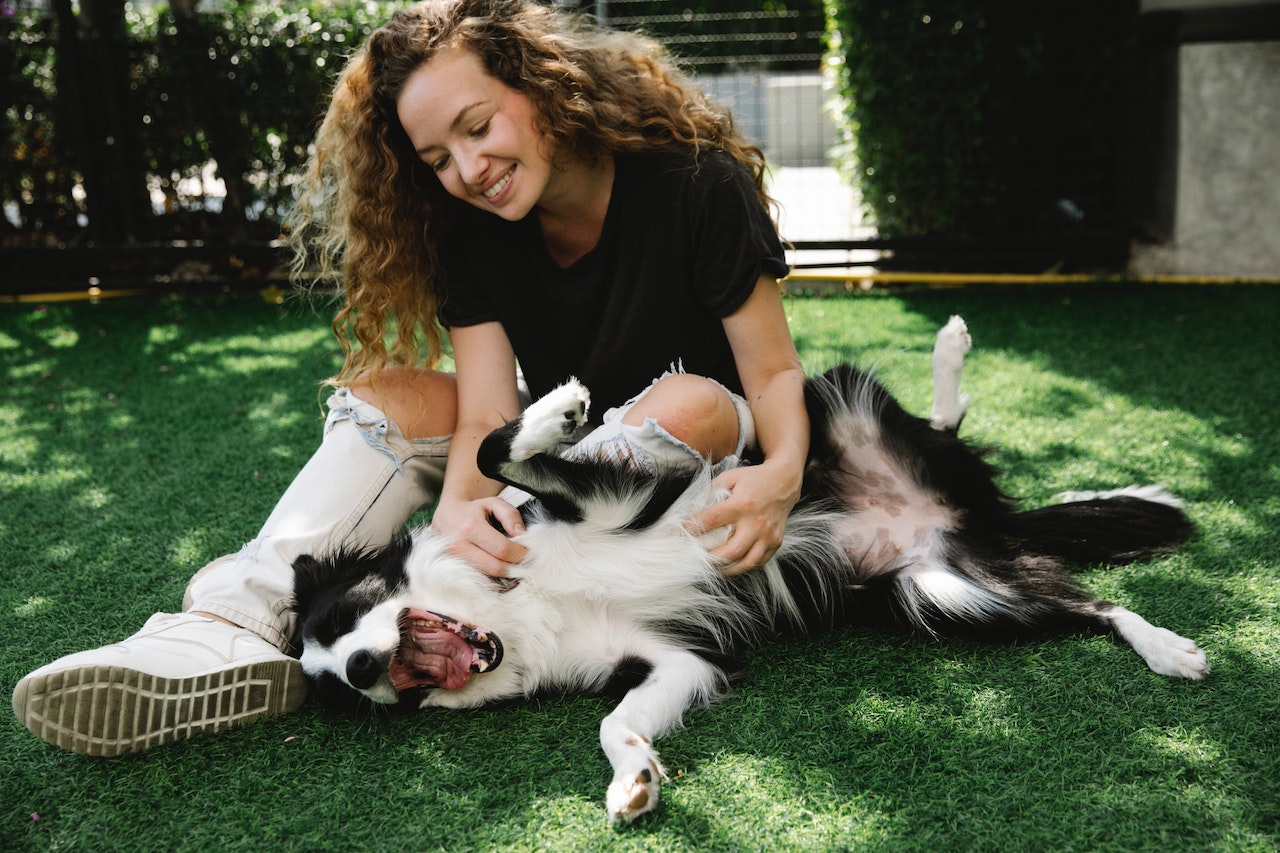Some days it seems as if you get outside in a thick cloud of pollen, ragweed or - even worse - mold. Hello seasonal allergies!
Luckily for us humans, there are ways that we can enjoy the great outdoors without itchy eyes and inflamed sinuses. But what about your pet? If you notice your pet scratching, sneezing more than usual, licking its paws, or shedding more fur than usual, it too may be suffering from a seasonal allergy.
Seasonal Allergy Symptoms
Dogs and cats show allergy symptoms similar to humans, but they feel them primarily through their skin. Excessive scratching likely means itchy, irritated skin. Here are some other symptoms to look out for:
+ Scratching and biting in the fur or on the skin
+ Red, inflamed or infected skin
+ Excessive shedding
+ Compulsive licking of the paws in dogs
+ Licking of the anal glands
+ Chronic ear infections or red, waxy ears (common in dogs prone to ear problems to begin with)
+ Respiratory problems, such as difficulty breathing, coughing or wheezing (more common in cats)

How to relieve allergic reactions
As with humans, there is no one-size-fits-all solution to your pet's seasonal allergies. But that doesn't mean they have to suffer.
Try an allergy pill
It's safe to give your furry friend an over-the-counter antihistamine to relieve symptoms. The dosage depends on the individual needs and the weight of the animal. However, before you administer allergy medication, you should consult your veterinarian.
Allergy medications that may be safe for your pet include:
- Benedryl (diphendyrmine)
- Claritin (Loraditin) *Never give your pet Claritin-D
- Zyrtec (cetirizine)
- Chlorine Trimton (chlorpheniramine)
- Generic brands for all of the above drugs
NOTE: If you want to try allergy medication, don't use a decongestant or anything that contains pseudoephedrine (like Claritin-D). Even small amounts of pseudoephedrine can be fatal to dogs.
These drugs work best as preventatives. If you know your pet is reacting to hay fever, you should start treatment as soon as allergy season hits.
Treatment of irritation with other means
If you're hesitant about giving your pet a pill, there are other ways to relieve the pet's symptoms, including natural remedies.
+ Flea and tick repellent . Make sure your best friend's skin doesn't get irritated by fleas.
+ Antipruritic sprays or creams . External treatments provide temporary relief and give your pet a break from constant scratching. Only use products intended for pets, as products marketed for humans may be ineffective or toxic to your furry friend.
+ baths. If your pet likes to bathe, you're in luck. If not, have the treats ready. Baths remove allergens or pollen from the pet's skin, relieve symptoms, and soothe the skin. Look for shampoos that contain oats, which moisturize the skin, relieve itching, and reduce inflammation.
Again, only use shampoos and soaps that are pet-friendly. Animals and humans have different pH levels, so products made for humans can cause additional irritation in pets.
+ Rub fur and paws. Similar to a bath, you can give your pet a quick rub of their fur, skin, and paws every time they return from outside to remove excess pollen and allergens if a full bath isn't possible. Use a damp cloth or hypoallergenic, fragrance-free wipe . This can be particularly helpful when the pet's irritation is limited to the paws.
+ fatty acid supplements . Omega fatty acids, found in many fish oil supplements , are another way to relieve itchy skin or prevent skin infections. They also help to strengthen the coat and make it more supple.
+ local honey . This tip is for dog owners only. Local honey is often made from the same pollen that causes seasonal allergies. The idea is that by ingesting the honey, you or your dog will get used to the pollen better. As a result, the allergies will be less of a nuisance. According to the Mayo Clinic, these results have not been consistently confirmed in clinical studies. Luckily, honey is a sweet treat for you and your dog, so there's no harm in trying.
+ Avoid allergens. The best way to relieve or reduce symptoms is to reduce exposure. This may be the most difficult option, as it's hard to keep a dog or cat from going outside, but limiting time outdoors on pollen-heavy days can help control symptoms.
For severe allergies, your vet may prescribe steroids to control inflammation. We know that seeing your pet with an allergy can be just as difficult as dealing with it themselves. Regardless of which method works best for you, we hope your pet will soon want tummy rubs for pleasure - not allergy relief - again!










